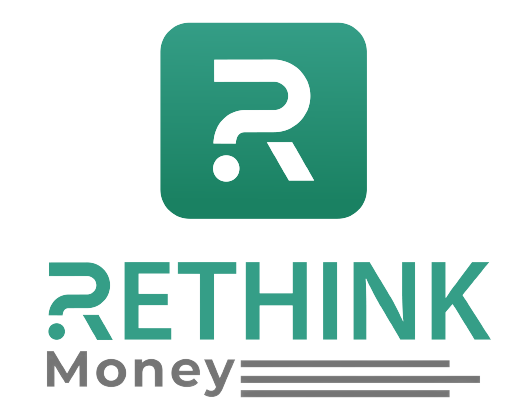If you are considering buying a home in Ireland, you may need to apply for a mortgage. Applying for a mortgage can be a complex process that requires careful planning and preparation. In this blog, we will provide some tips on preparing for a successful mortgage application in Ireland.
1. Understand the Mortgage Application Process
Before you begin preparing for a mortgage application, it is important to understand the process. A mortgage application involves a detailed review of your financial history, credit score, and other factors that may impact your ability to repay the loan. Ensure you understand the requirements and timeline of the mortgage application process before you start.
2. Know Your Credit Rating
Your credit rating is one of the most important factors lenders consider when evaluating your mortgage application. You can check your credit rating at Central Credit Register. Make sure to review your credit report for any errors or discrepancies and work to improve your credit score if necessary. The lender will frown on any loan arrears and consistent missed direct debits.
3. Review Your Finances
Before applying for a mortgage, reviewing your finances and ensuring you are in a good financial position is important. This includes reviewing your income, expenses, and debts. Then, make a budget to determine how much you can afford to pay each month for your mortgage and other expenses. Make sure you have funds for a deposit (10% of the house value). If you are a first-time buyer, you can think of the Help to Buy(HTB) scheme in which you can get up to 10% of the property value or €30,000, whichever is the lower amount, back from taxes you’ve paid. You can also try the First Home Scheme which can help with up to 30% of the cost of buying a new build home. The government take equity in the home, and you repay them over time at a lower interest rate.
4. Consider Your Employment Status
Your employment status can also impact your mortgage application. Lenders will want to see you in a stable employment and not in a probationary period. If you are self-employed, you will need to provide 3 years of tax returns and business financial statements.
5. Research Mortgage Lenders
Take the time to research different mortgage lenders in Ireland to find the best fit for your needs. Consider factors such as interest rates, fees, and customer service. You may also want to get recommendations from friends or family members who have gone through the mortgage application process. . You will obviously consider the main street banks like Bank of Ireland, AIB and PTSB. However, there are many non-retail mortgage lenders that offer better rates like Haven, EBS, ICS Mortgages and Finance Ireland. Choosing can be tricky so if you require any help, give us a shout.
6. Determine Your Budget
Based on your financial review and budget, determine how much you can afford to borrow and repay each month. This will help you determine the price range of homes you can afford and prevent you from overextending yourself financially. It also enables you to determine how much you need to save for your deposit.
7. Creating a Mortgage Application Checklist
To prepare for a successful mortgage application, it’s important to have a checklist of all the documents and information you’ll need to provide. A mortgage application checklist can help you stay organised and ensure that you have all the necessary information and documentation for your application. Your mortgage application checklist should include items such as proof of income, identification, bank statements, and any other documents or information your lender requires.
Here’s a sample mortgage application checklist to get you started:
- Proof of income (e.g. payslips, tax returns, bank statements)
- Identification (e.g. passport, driver’s license)
- Bank statements (e.g. for the last six months)
- Proof of address (e.g. utility bills, rental agreement)
- Employment details (e.g. name and address of employer, length of employment)
- Details of any outstanding debts (e.g. credit card balances, loans)
- Information about the property you wish to purchase (e.g. address, purchase price, estimated value)
8. Be Honest and Accurate
When filling out your mortgage application, it is essential to be honest and accurate. Lenders may conduct extensive background checks and reject your application if they find discrepancies or false information.
9. Be Prepared for Delays
Mortgage applications can take time to process, and delays can occur for various reasons. Be patient and prepared for delays, and stay in communication with your lender to ensure the process is moving forward.
10. Consult with a Mortgage Advisor
If you need clarification on any aspect of the mortgage application process, consider consulting with a mortgage advisor. A mortgage advisor can provide you with valuable advice and guidance on the application process, including helping you find the best mortgage lender for your needs.
11. Don’t Make Any Major Financial Changes
Avoid making any major financial changes during the mortgage application process. This includes taking out new loans or credit cards, changing jobs, or making large purchases. Any significant financial changes can impact your credit score and ability to repay the loan.
12. Maintain Good Communication
Maintaining good communication with your mortgage lender is important throughout the application process. Keep your lender updated on any changes to your financial situation and be responsive to any requests for additional information or documentation.
Our Advice
Applying for a mortgage can be a daunting process, but with careful preparation and planning, you can increase your chances of success. Remember to understand the process, know your credit rating, review your finances, and consult with a mortgage advisor. Stay organised, maintain good communication, and be patient; soon enough, you’ll be on your way to owning your dream home.
FAQs
How long does the mortgage application process typically take?
The mortgage application process can vary depending on several factors, including the lender, the complexity of the application, and any delays or issues that may arise. Typically, the process can take anywhere from four to eight weeks.
What documents do I need to provide for a mortgage application?
You will need to provide several documents to support your mortgage application, including bank statements, tax returns, payslips, employment verification, and proof of identity and address. Your lender may require additional documentation based on your individual circumstances.
Can I get pre-approved for a mortgage before finding a home?
Yes, you can get pre-approved for a mortgage before finding a home. This can be a helpful step in the home-buying process as it can give you a better idea of your budget and help you shop for homes within your price range.
What should I do if my mortgage application is denied?
If your mortgage application is denied, you may want to consider finding out the reason for the denial and taking steps to improve your financial situation. This may include paying down debt, improving your credit rating, or working with a mortgage advisor to explore other options.



